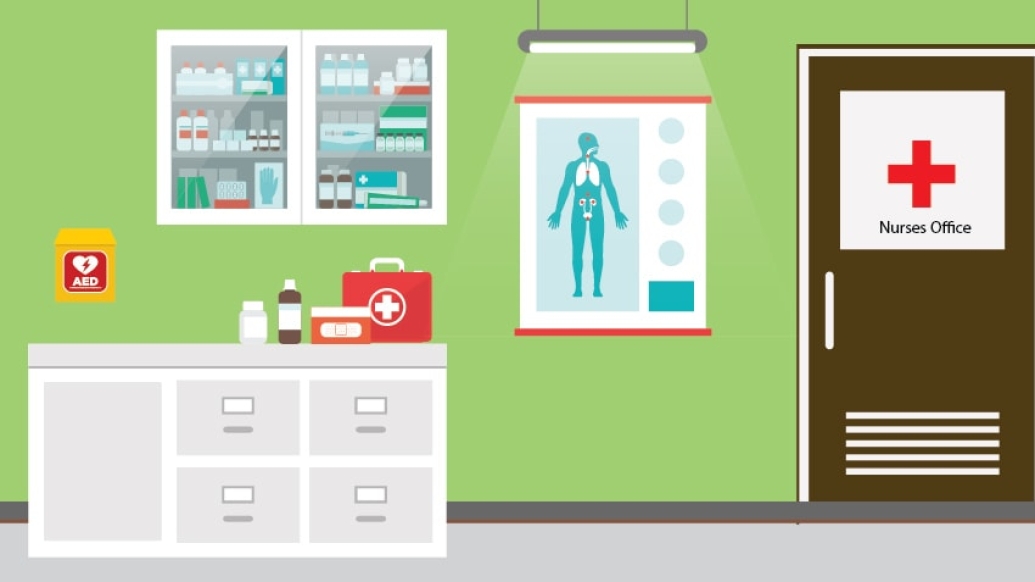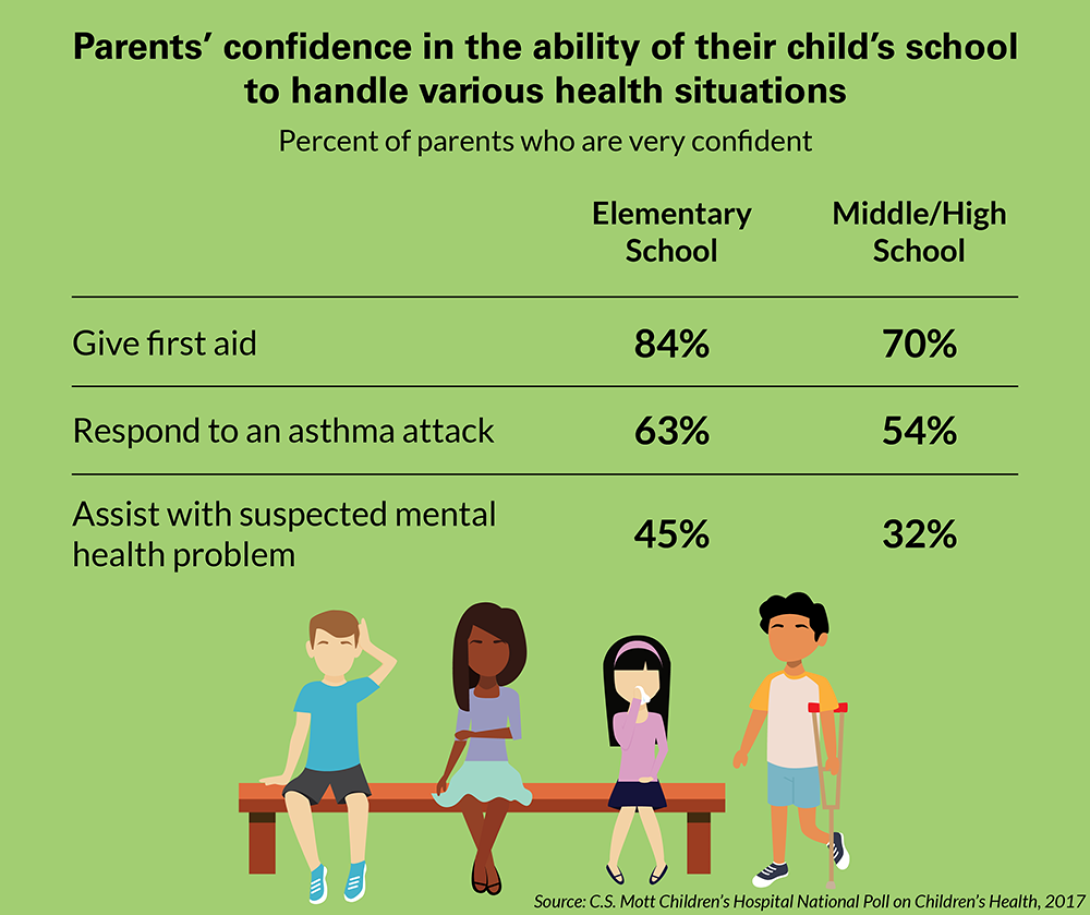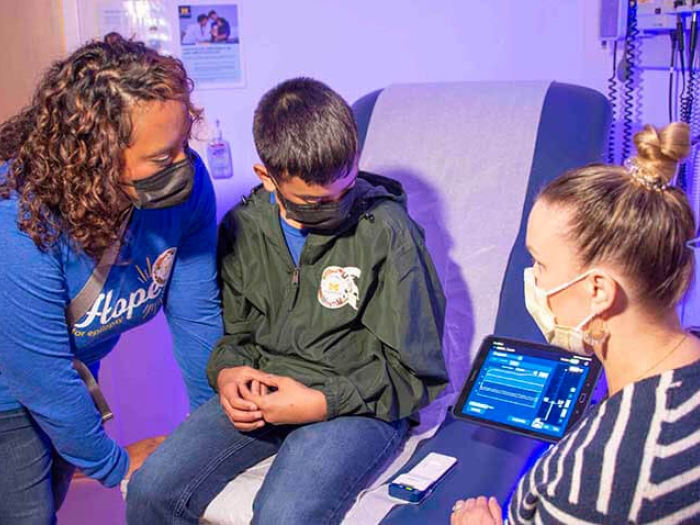A new U-M poll finds that most parents are confident a child’s school is prepared to handle basic first aid but are less confident when other health issues arise.
7:00 AM
Author |

As a new school year begins, parents of children with chronic health issues know that a return to the classroom comes with special challenges.
MORE FROM MICHIGAN: Sign up for our weekly newsletter
Whether the issues relate to physical or mental health, addressing them early — and fully — is key to ensuring that a student's needs are met.
That discussion might involve teachers, principals, school nurses, guidance counselors and other administrators.
"It's really a partnership," says Angie Spence-Green, director of the Regional Alliance for Healthy Schools, a Michigan Medicine program that runs comprehensive health centers at 11 schools in Genesee and Washtenaw counties.
But that partnership isn't always practiced: Results from a new C.S. Mott Children's Hospital National Poll on Children's Health found that fewer than two-thirds of parents (58 percent) think their child's school is prepared to handle serious health issues such as an asthma attack.
When it comes to handling a mental health problem, that number dropped: Only 38 percent of parents were confident a school could respond properly.
The poll, which surveyed 1,195 parents with children ages 6-18, also revealed that respondents were split among which person in the building they thought was best suited to help.
That divide, Spence-Green says, underscores the need for everyone to be on the same page about a child's well-being — and to have a treatment plan on file if problems arise.
She spoke more about how to be ready:
Preparing schools for a child's chronic health condition
Speak up: Schools can't provide proper or timely care if a child's needs aren't known — a risky omission should an emergency arise. Any known health concerns, even small ones, must be disclosed to educators to ensure the child is safe, stable and ready to learn. "Parents or guardians need to be the primary advocate for their children," Spence-Green says.
Start early: The start of a new year, when registration and parent-teacher introductions are in motion, is a good time to initiate the conversation. "That's when you know the faculty and staff will be on site," Spence-Green says. Administrators can help begin the necessary paperwork and, if needed, develop a 504 plan or an Individualized Education Program (IEP).
SEE ALSO: Your Pediatrician vs. Urgent Care: What to Do When Your Child is Sick
Put it in writing: Reacting to a chronic illness might require more than first aid. Says Spence-Green: "It's really important that parents have written instructions for a school that outline the steps that need to take place." Created in partnership with the child's parent and medical provider, the document should include when to contact a caretaker or doctor.
Keep everyone informed: About 60 percent of parents assume a school nurse is most likely to handle a student's injury or health crisis, the Mott Poll found. But such responsibility shouldn't fall on one person (and not every school employs a full-time nurse or clinic aide). Knowledge-sharing among all school staff members who educate a child is crucial, Spence-Green says.
Reinforce and revise: An original game plan might not work perfectly from the start, requiring adaptation as the year goes on. And that's OK. "If a parent feels a plan isn't working, they should regroup with school administrators," Spence-Green says. "There might be several layers of school staff who need to get involved. The biggest piece is to be open and available."


Explore a variety of healthcare news & stories by visiting the Health Lab home page for more articles.

Department of Communication at Michigan Medicine
Want top health & research news weekly? Sign up for Health Lab’s newsletters today!





